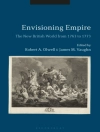A study of one of the most intense and formative periods of modern political history. The years 1899-1914 witnessed a fundamental challenge to many Victorian values and institutions: Free Trade, the new Poor Law, the House of Lords, the Irish Union – all were under attack, while organized labour and the feminist movement displayed an unprecedented assertiveness and aggression. Drawing on a variety of sources, this work examines what made these years the most politically turbulent between the Chartist era and today. It emphasizes the long shadow cast by the South African War, and the challenges to national identity posed by imperialism and by the Irish nationalist movement. Consideration is also given to the 1906 Liberal landslide victory and the way in which this aroused expectations that could not always be fulfilled. The author offers his own perspectives on the leading figures of the day – Chamberlain, Balfour, Lloyd George, Asquith and Churchill. While the emphasis of the book is on political thought, the author also sets his discussion within the broader context of social and economic change. This study is designed for A’ level and undergraduate students of Edwardian history.
Tabella dei contenuti
Acknowledgements
Introduction
1 Politics and war, 1899-1902
2 The Unionist debacle, 1902-1905
3 New Liberalism for old, 1906-1910
4 Challenges to the constitution, 1910-1914
Selected documents
Bibliographical essay
Index
Circa l’autore
David Brooks is Lecturer in History at Queen Mary & Westfield College, University of London.












